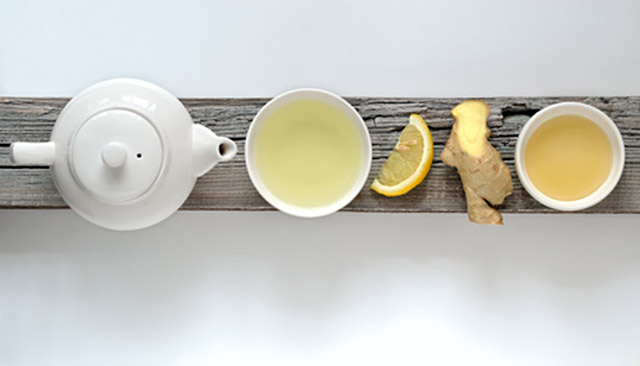Ginger is revered for its medicinal benefits. It came from Southeast Asia, from where it spread around the world. Let’s look at why you should drink ginger tea.
Anti-inflammatory:
Ginger contains unique compounds called gingerols, which are very powerful anti-inflammatory agents. Because of ginger’s anti-inflammatory properties, it helps relieve the pain associated with both types of arthritis: rheumatoid arthritis and osteoarthritis.
Cancer prevention:
A study at the University of Minnesota showed that gingerols play a crucial role in preventing the development of colorectal cancer. More research needs to be done to confirm this benefit, but the results look promising. Another study conducted by Dr. Rebecca Liu at the University of Michigan showed that gingerols were also able to kill ovarian cancer cells. Again, more research needs to be done to confirm that ginger is a treatment for cancer.
Immune booster:
Ginger promotes sweating, which is a great form of natural detoxification. It doesn’t just help with detoxification; sweat contains a compound called dermicidin which provides protection against bacteria like E. coli and Staphylococcus aureus, and fungi including candida. According to health specialist Lindsey Duncan for the Dr. Oz, “Ginger is a natural anti-viral, so it will help fight off pesky illnesses and has been shown to heat up the human body to help induce fever. Fever is the body’s natural defense against cold and flu, and with a little help from this powerful herb, you can attack the root of your flu and find faster relief from your symptoms.”
Motion sickness:
Studies have confirmed that ginger is effective for eliminating the symptoms of motion sickness. It is especially effective against seasickness. One particular study showed that ginger was much more effective for motion sickness symptoms than the leading over-the-counter medication called dimenhydrinate. The symptoms of motion sickness include nausea, cold sweats, dizziness, and vomiting.
Nausea and vomiting in pregnancy:
Ginger is very beneficial in reducing vomiting and nausea symptoms in pregnancy. Studies have confirmed that consuming ginger relieves or brings down these symptoms in pregnant women.
The best part about using ginger for these symptoms is they do not come with the risk of birth defects like over-the-counter medications do.
TIP: Ginger tea is so easy to make! Simply steep a 1-inch piece of organic ginger in a cup of hot water for 5 minutes, and enjoy.
Note: None of the information in our website is intended to diagnose, treat, cure or prevent any illness or disease. The content on our website is for educational purposes only.
DON’T FORGET to sign up for our weekly newsletter to get our latest articles, updates, free recipes and giveaways.
For the health benefits of ginger.
For a homemade ginger ale recipe.
Eating ginger may kill breast cancer cells.
1. “The Anti-Motion Sickness Mechanism of Ginger. A Comparative Study with Placebo and Dimenhydrinate.” Acta Oto-Laryngologica., U.S. National Library of Medicine, 1989, http://www.ncbi.nlm.nih.gov/pubmed/2683568.
2. “Ginger, a Powerful Herb.” The Dr. Oz Show, http://www.doctoroz.com/blog/lindsey-duncan-nd-cn/ginger-powerful-herb.
3. “Ginger for Nausea and Vomiting in Pregnancy: Randomized, Double-Masked, Placebo-Controlled Trial.” Obstetrics and Gynecology., U.S. National Library of Medicine, Apr. 2001, http://www.ncbi.nlm.nih.gov/pubmed/11275030.
4. “[6]-Gingerol Suppresses Colon Cancer Growth by Targeting Leukotriene A4 Hydrolase.” Cancer Research., U.S. National Library of Medicine, 1 July 2009, http://www.ncbi.nlm.nih.gov/pubmed/19531649.
5. “Pharmacokinetics of 6-, 8-, 10-Gingerols and 6-Shogaol and Conjugate Metabolites in Healthy Human Subjects.” Cancer Epidemiology, Biomarkers & Prevention : a Publication of the American Association for Cancer Research, Cosponsored by the American Society of Preventive Oncology, U.S. National Library of Medicine, Aug. 2008, http://www.ncbi.nlm.nih.gov/pmc/articles/PMC2676573/.

















